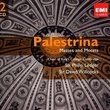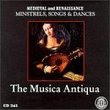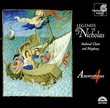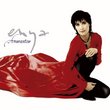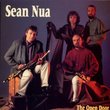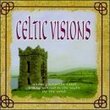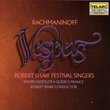| All Artists: Peter Phillips, Tallis Scholars Title: Christmas Carols & Motets Members Wishing: 0 Total Copies: 0 Label: Polygram Records Release Date: 10/15/1996 Genres: Special Interest, Classical Styles: Holiday & Wedding, Opera & Classical Vocal Number of Discs: 1 SwapaCD Credits: 1 UPC: 028945491028 |
Search - Peter Phillips, Tallis Scholars :: Christmas Carols & Motets
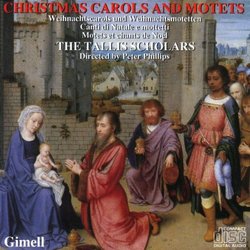 | Peter Phillips, Tallis Scholars Christmas Carols & Motets Genres: Special Interest, Classical
Pretty much every successful chorus has to do a Christmas disc or two sooner or later--the Tallis Scholars are no exception. Happily, it's no crossover attempt: the music Peter Phillips has selected fits right into their r... more » |
Larger Image |
CD DetailsSynopsis
Amazon.com Pretty much every successful chorus has to do a Christmas disc or two sooner or later--the Tallis Scholars are no exception. Happily, it's no crossover attempt: the music Peter Phillips has selected fits right into their repertory, and the performance is up to the group's usual high standard. The music ranges from the Middle Ages (English carols such as the gracious "There Is No Rose" and the boisterous "Nowell Dieu vous garde") through the Renaissance (motets by Josquin, Byrd, and Victoria) to the early Baroque (lovely arrangements by Praetorius of the familiar tunes "Lo How a Rose," "Joseph lieber, Joseph mein," and "In dulci jubilo"), and from the simple "Lullay: I Saw" for two tenors (one of the earliest English carols) to gorgeously rich settings of "Ave Maria" for seven voices by Philippe Verdelot and for eight voices by Tomás Luis de Victoria. --Matthew Westphal Similar CDsSimilarly Requested CDs
|
CD ReviewsThe joy and beauty of Christmas- as never before! Mark Swinton | 09/30/2000 (5 out of 5 stars) "This disc came as something of a surprise to me. The Tallis Scholars are justly famous for making Renaissance music, familiar and otherwise, known through concerts and recordings. As a devotee of their work, I did a double-take when I first saw the cover of this disc. Surely they weren't offering all those old but admittedly overdone chestnuts that we see in new recordings year in and year out?Actually, they weren't. Peter Phillips and ten of his singers have chosen a programme that reflects Christmas as the people of the Renaissance (and Early Baroque) might have seen it: simple chants, piquantly harmonised; Marian motets, and carols from the European mainland that have survived to this day, albeit greatly altered by other musical cultures. What emerges is thus wonderfully different than most other Christmas records: it is 'Christmassy' but not in the way we are used to.On the whole, although about 54 minutes long, the disc is therefore very enjoyable. The Tallis Scholars hallmark sound quality is there, taut and powerful yet sensitive and appropriate for the music. Phillips has prepared many of the pieces himself using various authentic sources, and as I have said it is a delectable feast of musical gems: amongst the early works, "Angelus ad virginem" and "There is no Rose" are the most immediately arresting, whilst of the four "Ave Maria" motets, Victoria's setting is particularly rapt and works well on the ear whether you listen at Christmastide or not. Finally, there are some delightful arrangements of well-known European carols, sung in German: "Es ist ein Ros entsprungen" will be known to many as "A great and mighty wonder." The last track, "Zion hort die Wachter singen," is presented with the harmonies of both Michael Praetorius and J. S. Bach, bringing the programme to a wonderful close.Although a lot of these works are repetitive (they are, after all, not much different than the hymns sung at Christmas in this day and age), Phillips does his best to maintain interest by deploying the singers in various ways; hence there are solo verses and passages for solo quartets in addition to the use of different soloists for each verse.In short, this is a genuinely worthwhile record to get hold of if Christmas lists are looming and ideas are none as to what will make an original and unusual present. Warmly recommended!" A voice teacher and early music fan George Peabody | Planet Earth | 12/13/2008 (5 out of 5 stars) "1986 TALLIS SCHOLAR'S RECORDING PRESENTS THREE TRADITIONAL WAYS OF CELEBRATING CHRISTMAS IN MUSIC, AND THE PRESENTATION IS SUPERB!!!!!
The three ways are: medieval carols, renaissance motets praising the Virgin Mary, and German chorales. All of these performed herein are sung in their original forms, without 'modern' arrangements, and culminate in three versions of the 'COVENTRY CAROL', that includes Byrd's famous 'LULLABY'(a truly beautiful work performed frequently by countertenors). This is followed by four settings of 'AVE MARIA' presented in chronological order of composition: two early renaissance examples by Josquin de Pres(1440-1521) and Verdelet(1520-1550) with two by the great Spanish composer Tomas Luis di Victoria (1548-1611). The last group of pieces is made up of some attractive traditional choral melodies, harmonized by the German composers Hieronymous Praetorious(1560-1629) and Michael Praetorious (1571-1621) not related to each other, and by J.S.Bach (1685-1750). The carol was one of the main forms of popular music in medieval Europe, and it seems that most of them reflected religious concerns. There are some carols associated with drinking and fighting, but the majority are associated with the leading religious feast of the year. This group of Tallis Scholars include ten singers,all very fine as per usual. Of course, as with any choral ensembles, personnel do not remain constant, but I have to say that I have never heard a 'bad-sounding' presentation at any time from them. Their Gimell recordings demonstrate singing at its finest: sopranos who never strain on high notes who sing with a free clear bell-like sound- countertenors(altos) who have that lovely velvet tone quality so common with a GOOD countertenor, tenors who present a tuneful sound and basses who do not 'rumble'. Good diction, good vocal balance and excellent emotional investment. Thank-you Peter Phillips!!!!" |

 Track Listings (15) - Disc #1
Track Listings (15) - Disc #1